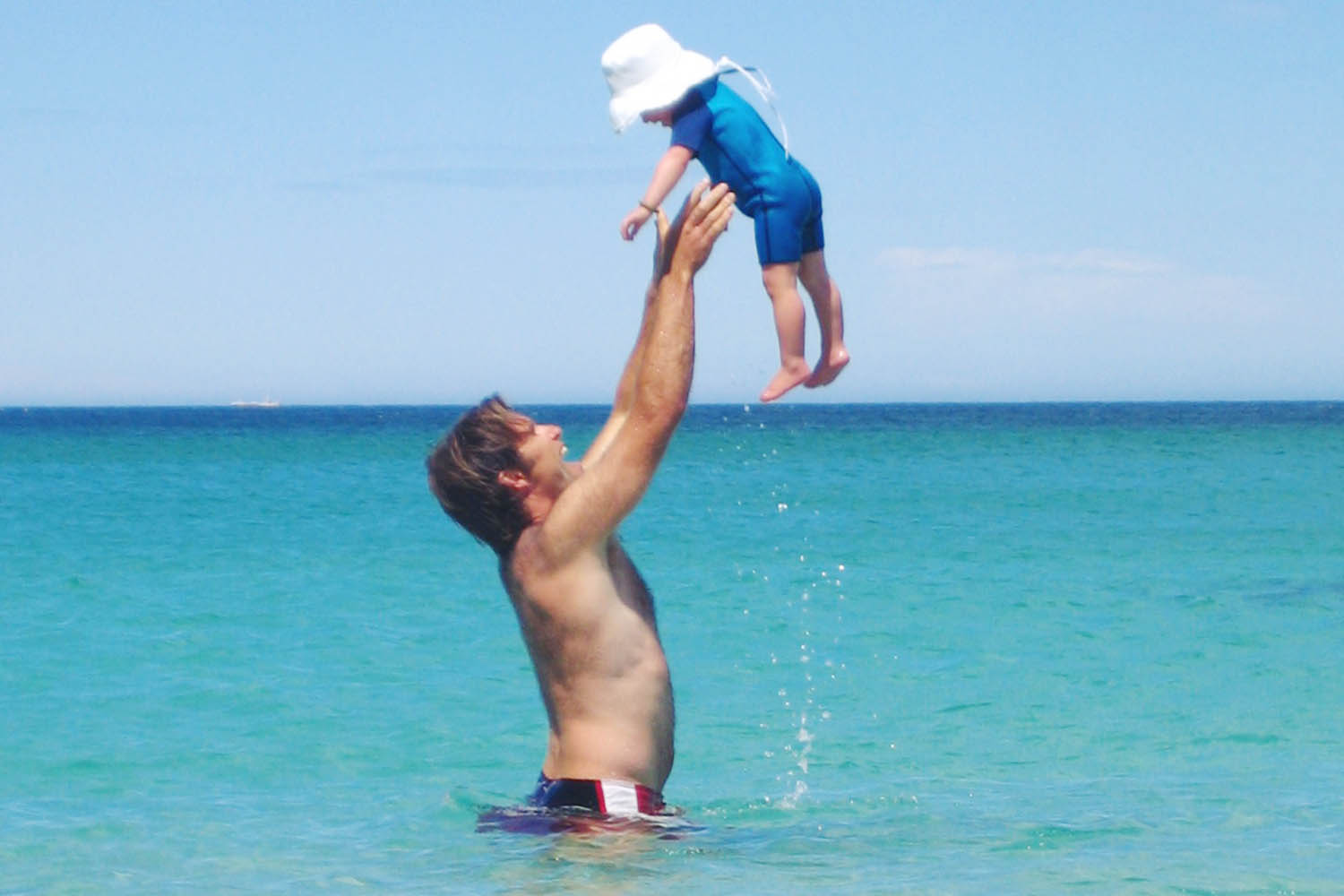Fatherhood: A History of Love and Power
Augustine Sedgewick
Picador, £20, pp320
Brandishing a book named Fatherhood in public makes you quite self-aware. I read much of Augustine Sedgewick’s volume over the Easter half-term, often while accompanying my son to swimming lessons, or lightly supervising him at playdates in the park. Doing so felt mildly ostentatious. Not for me a discrete earphone and the latest episode of a podcast called Hitler’s Bloody War Machine. No. I’m reading a handsomely jacketed book about fatherhood and perhaps, if you actually loved your children, you’d do the same.
Sometimes this feeling was flipped, and I worried I looked like someone who’d stolen himself a child and decided, shortly afterwards, that it might be worth figuring out how to work the damned thing. I imagined, everywhere, looks of angst in my direction from other parents, the kind you might give your mechanic if you caught him sheepishly looking at auto-repair videos on YouTube while simultaneously shooting ashen-faced glances at the innards of your car.
The market for advice about fatherhood is booming. Less than a year before I began the parenting column I’ve written for this paper since 2018, Jacob Rees-Mogg confirmed on live radio that he’d never changed a nappy, despite having six children. In 2020, a mildly flustered Boris Johnson couldn’t say whether he had ever done so for any of his children; the exact number of whom was then unknown. By 2022, this fault in messaging had clearly been addressed. “I’ve changed a lot of nappies,” he told Mumsnet, before adding: “I’m very fast, by the way.”
Innumerable books, podcasts, speaking tours and educational initiatives have reflected a growing push toward shared labour in the home, and increased fatherly engagement with young children. With this has come a depressing, perhaps inevitable, pushback from commentators seeking to reassert “traditional” masculine values.
Which is why I picked up Fatherhood slightly wary of what was to come. Thankfully, it is not a parenting manual at all, but a trip through the history of fatherhood as a concept, from the bronze age to the 20th century. Fatherhood as a social construct, a cultural phenomenon, a religious vocation, a synecdoche for power, status, class and race.
Sedgewick, an academic at City University of New York, has previously written on the history of food, labour and global capitalism, most notably in his 2020 book, Coffeeland, a similarly sprawling history of coffee over the past 400 years. Fatherhood’s own wide lens is apparent from its opening pages. Its introductory passages dwell on the earliest known writings on fatherhood, most notably extracts from The Instructions of Shuruppak, – perhaps the ancient equivalent of Fatherhood for Dummies – hailing from Sumeria, c2,500BC, which offers advice on how to treat your children, alongside instruction on where to site a farm, how much you should pay for livestock and admonitions against cavorting with married women.
Sedgewick also makes diversions into non-nuclear cultures in which parenting was dispersed throughout communities, and those tribes and societies where matriarchal structures dominated. I was fascinated by his account of our Homo erectus ancestors “infant carrying” 4m years ago, a practice which required the evolution of shorter forearms than those of our simian cousins – the better for archaic humans of both genders to clamp a child to a hip while walking.
The wedge of pages between left thumb and forefinger gets fat before you find notions of love
The wedge of pages between left thumb and forefinger gets fat before you find notions of love
The rest of the book is about famous fathers and their personal experiences of, and public pronouncements on, fatherhood itself. They’re a pleasingly inchoate bunch: Plato, Aristotle, Saint Augustine, Henry VIII, Thomas Jefferson, Ralph Waldo Emerson, Henry David Thoreau, Charles Darwin, Sigmund Freud and Bob Dylan. Taken together, they resemble a dream dinner party you might imagine Chris Eubank selecting for a particularly unhinged Sunday supplement. But the book’s sprawl reaches further still, nimbly flitting between millennia of anthropology, philosophy, canon law and human behaviour, with a lightness of touch that recalls Bill Bryson or Craig Brown at their nonfiction best. In the chapter on Thomas Jefferson, we learn that “raising” children is an Americanism, transplanted from its English usage for crops and animals, and grimly inseparable from the practice of slavery in the US. From the section about Henry VIII, we gain an exegesis on the social function of bastardry, and the establishment of primogeniture, as an iron-clad succession plan.
Everywhere, we find delineations of fatherhood’s central role in cementing nobility, authority, citizenship and good legal standing, of fatherhood as an ideal, and of fathers as a tribe in constant search of a governing creed.
Newsletters
Choose the newsletters you want to receive
View more
For information about how The Observer protects your data, read our Privacy Policy
The wedge of pages between your left thumb and forefinger will have grown quite fat before you encounter notions of sentimental love. One hundred pages in, we encounter Martin Luther, an unlikely avatar for the modern dad, but the first in the text to acknowledge a father might be involved in the domestic sphere. “When a father washes diapers or performs some other mean task for his child” he wrote, 500 years before Mumsnet got the chance to grill him on the subject, “God, with all his angels and creatures, is smiling.” Lest we get too weepy over 1523’s Dad of the Year, we are also reminded of the most famous epigraph attributed to him: “I would rather have a dead son than a disobedient one.”
Given the scope of Sedgewick’s topic, his chosen subjects sometimes function less as father figures themselves and more as broad avatars for shifting fatherly mores across time. However, the connections often become thrillingly explicit, as in the moving behavioural notes Charles Darwin made of his children, simultaneously written with analytical distance and loving tenderness, and presaging the depth of his grief on losing his daughter some years later.
It’s just one example of Sedgewick’s skill for combining studious research and literary agility, which makes Fatherhood a deeply fascinating and strikingly humane read.
Photograph by Jodie Griggs/Getty Images

